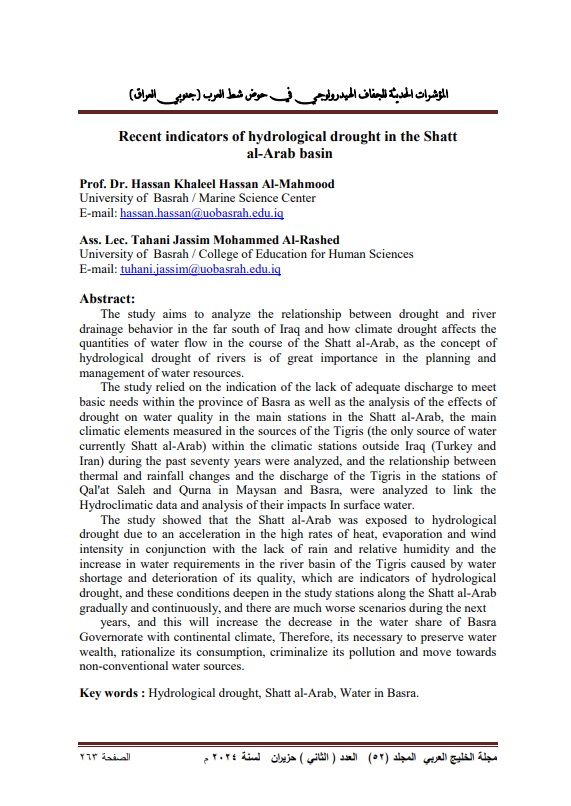Recent indicators of hydrological drought in the Shatt al-Arab basin
Keywords:
Hydrological drought, Shatt al-Arab, Water in BasraAbstract
The study aims to analyze the relationship between drought and river drainage behavior in the far south of Iraq and how climate drought affects the quantities of water flow in the course of the Shatt al-Arab, as the concept of hydrological drought of rivers is of great importance in the planning and management of water resources.
The study relied on the indication of the lack of adequate discharge to meet basic needs within the province of Basra as well as the analysis of the effects of drought on water quality in the main stations in the Shatt al-Arab, the main climatic elements measured in the sources of the Tigris (the only source of water currently Shatt al-Arab) within the climatic stations outside Iraq (Turkey and Iran) during the past seventy years were analyzed, and the relationship between thermal and rainfall changes and the discharge of the Tigris in the stations of Qal'at Saleh and Qurna in Maysan and Basra, were analyzed to link the Hydroclimatic data and analysis of their impacts In surface water.
The study showed that the Shatt al-Arab was exposed to hydrological drought due to an acceleration in the high rates of heat, evaporation and wind intensity in conjunction with the lack of rain and relative humidity and the increase in water requirements in the river basin of the Tigris caused by water shortage and deterioration of its quality, which are indicators of hydrological drought, and these conditions deepen in the study stations along the Shatt al-Arab gradually and continuously, and there are much worse scenarios during the next
years, and this will increase the decrease in the water share of Basra Governorate with continental climate, Therefore, its necessary to preserve water wealth, rationalize its consumption, criminalize its pollution and move towards non-conventional water sources.




